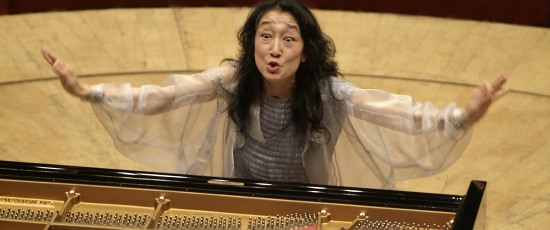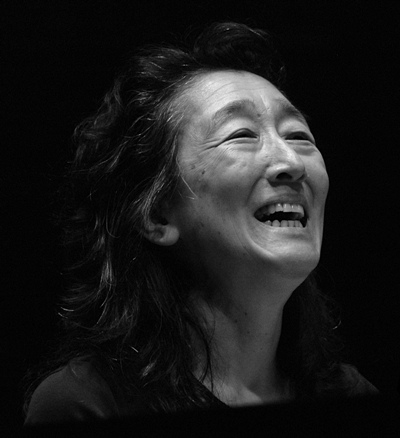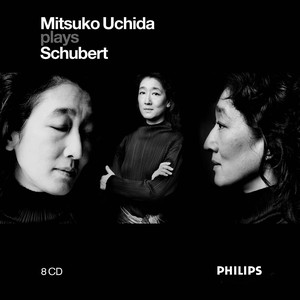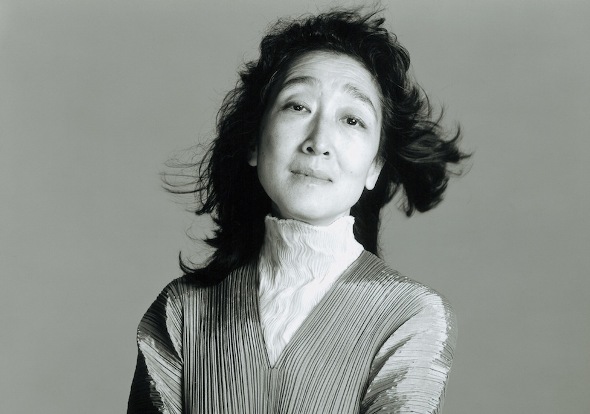In a week to remember, pianist Mitsuko Uchida bridges the lyrical realms of Schubert, Mozart
 Commentary: After a recital of late Schubert sonatas, Uchida is back at Orchestra Hall playing Mozart concertos with the Chicago Symphony through April 1.
Commentary: After a recital of late Schubert sonatas, Uchida is back at Orchestra Hall playing Mozart concertos with the Chicago Symphony through April 1.
By Lawrence B. Johnson
Pianist Mitsuko Uchida’s two appearances this last week at Orchestra Hall, in a recital of Schubert’s late sonatas March 25 and her current concerts playing and conducting Mozart concertos with the Chicago Symphony Orchestra, resonate not like discrete encounters but rather like an epic testimonial to her phenomenal art.
 This petite figure, who even in her mature years still bounces onto the stage all bright colors and gossamer textures, is an altogether irresistible musician, original and sure, technically insuperable and devoid of mannerisms. The pianist serves the composer. And still, as this arc of a week bore witness, Uchida’s playing is illuminating in the very essence of its personality. Call it a transparent communion between the genius of the composer and the passion of the performer.
This petite figure, who even in her mature years still bounces onto the stage all bright colors and gossamer textures, is an altogether irresistible musician, original and sure, technically insuperable and devoid of mannerisms. The pianist serves the composer. And still, as this arc of a week bore witness, Uchida’s playing is illuminating in the very essence of its personality. Call it a transparent communion between the genius of the composer and the passion of the performer.
In that sense, her solitary exploration of Schubert’s last sonatas perhaps offered the more perfect – and I use that degree advisedly – example of Uchida’s art. To peer over her shoulder as she melded intellectually and poetically into the most personal of Schubert’s music, three works written in the closing weeks of his life, was a rare and memorable opportunity.
Uchida’s Schubert was notable first of all for its architectural clarity, and with that its lyricism, dynamic contours and rhythmic vitality. Uchida can be astonishing in the sheer force of her attacks, and in the way she can instantly back off to construct an arching line of weightless grace. This sort of sculptural impulse became a signal feature of the opening movement of the Sonata in C minor, D. 958. Here, and in the outer movements of both that sonata and the Sonata in A major, D. 959, the strike-and-flow of strength and grace hinted strongly at a symphonic plan beneath the pianistic structure.
That’s hardly a stretch when one remembers that the grandest of Schubert’s symphonies, the “Great” C major, was written just prior to these sonatas – a circumstance that registered even more forcibly when Uchida turned to the very last sonata, in B-flat major, D. 960. To contemplate Bruckner’s love for Schubert is to think of the cathedral-like form of this sonata, and Uchida’s performance built it from the ground up in great, studied sweeps eloquent of spiritual certainty: Bruckner before Bruckner.
 Common to Uchida’s playing of all three sonatas were slow movements of radiant warmth and intimacy. While one tends to think of technical wizardry as speed and agility, both of which this pianist commands in spades, the most single remarkable feature of Uchida’s technical mastery is her ability to play in fine degrees of softness. Her readings of Schubert’s adagios were verses of luminous poetry in which the greatest daring was expressed in gradients downward to the utmost pianissimo.
Common to Uchida’s playing of all three sonatas were slow movements of radiant warmth and intimacy. While one tends to think of technical wizardry as speed and agility, both of which this pianist commands in spades, the most single remarkable feature of Uchida’s technical mastery is her ability to play in fine degrees of softness. Her readings of Schubert’s adagios were verses of luminous poetry in which the greatest daring was expressed in gradients downward to the utmost pianissimo.
Uchida’s lyrical sensibility, together with her unfailing elegance, is the link between her Schubert and the two Mozart concertos she’s playing – and conducting – through April 1 with the Chicago Symphony. What are Mozart’s piano concertos but opera without words? Uchida is a singer as keyboardist. As a conductor, she radiates music from her fingertips, indeed from the very pulse of her body.
The concertos at hand make a good pairing: No. 18 in B-flat, K. 456, a vivacious jewel that somehow has never enjoyed great popularity, and No. 9 in E-flat, K. 271 (“Jeunehomme”), the earliest of Mozart’s true masterpieces in the form and arguably as great as any to come.
The Concerto in B-flat is chamber music writ large, by turns bright and intimate, martial and exuberant, filled with colorful exchanges between keyboard and winds. It is Mozart the opera composer under full sail. Uchida’s crisp, sparkling performance enjoyed spirited partnership in the CSO’s alert little band of strings, woodwinds and horns. And conducting from the keyboard, sometimes cueing between phrases, she managed to keep all the musical components in close order.
A trickier challenge presented itself in the “Jeunehomme” Concerto. Though Uchida offered a keyboard performance of silken elegance, Mozart’s tightly knit ensemble writing more than once found the pianist-conductor raising a busy left hand a touch behind an orchestral entrance. Here, the sum of pianist and orchestra likely would been greater under the free supervising hand of a conductor. With this exception: the slow movement, so evocative of Bach in its solemn spirituality, and delivered from the heart by a pianist in whom music and soul are synonyms.
Here is Mitsuko Uchida’s remaining concert schedule for this season:
- April 5-7: Cleveland Orchestra. She will play and conduct Mozart’s Piano Concertos No. 9 and No. 21. Uchida and Cleveland won a 2010 Grammy Award together for Best Instrumental Soloist Performance with Orchestra, playing Mozart Piano Concertos No. 23 and No. 24.
- April 11: Carnegie Hall. Recital of late Schubert sonatas.
- April 23: Royal Festival Hall, London: Recital of late Schubert sonatas.
- In May she will play a recital tour of Perugia, Prague and London with Czech mezzo-soprano Magdalena Kozená. They will perform songs by Mahler, Debussy and Messiaen.
Related Links:
- Interview with Mitsuko Uchida on Mozart and Schubert: View it complete at YouTube
- Uchida’s complete Schubert page at Decca: Purchase discs or download individual selections
- Uchida’s official website: Go to www.mitsukouchida.com
Photo captions and credits: Home page and top: Mitsuko Uchida as pianist-conductor. (Photo by Hyou Vielz) Descending: The exuberant pianist. (Photo by Jean Radel) Album cover of Uchida’s recording of the complete Schubert sonatas. (Decca) Below: Pianist Mitsuko Uchida (Photo by Richard Avedon)
Tags: Chicago Symphony Orchestra, Mitsuko Uchida, Mozart, Schubert


